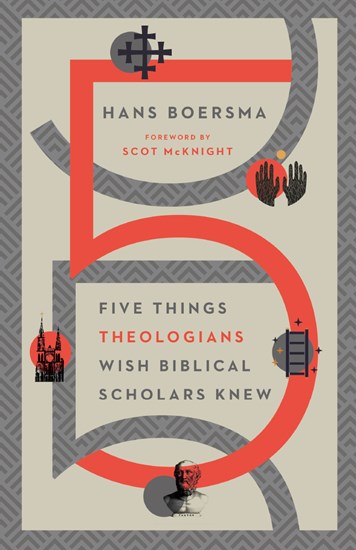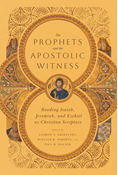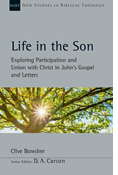
|
Five Things Theologians Wish Biblical Scholars Knew
paperback
|
- Length: 176 pages
- Dimensions: 5.5 × 8.5 in
- Published: September 07, 2021
- Imprint: IVP Academic
- Item Code: 5390
- ISBN: 9780830853908
-
Other Retailers:
Amazon*
*affiliate partner
The disciplines of theology and biblical studies should serve each other, and they should serve both the church and the academy together. But the relationship between them is often marked by misunderstandings, methodological differences, and cross-discipline tension.
Theologian Hans Boersma here highlights five things he wishes biblical scholars knew about theology. In a companion volume, biblical scholar Scot McKnight reflects on five things he wishes theologians knew about biblical studies.
With an irenic spirit as well as honesty about differences that remain, Boersma and McKnight seek to foster understanding between their disciplines through these books so they might once again collaborate with one another.
"Boersma invites us to consider the relationship between theology and biblical studies by taking us on a tour of the inner workings of his discipline. He helps us understand how theology views the Bible as a witness to all things being reconciled in our Lord Jesus Christ, a book saturated in metaphysical presuppositions, governed by the providence of God, which we interpret as his church, in anticipation of our final end: the contemplation of God. This book and its companion are must-reads for those pursuing theological or biblical studies—a clear and winsome invitation to step beyond artificial but strongly held divisions in seminaries and universities today."
"I was trained in a method of biblical scholarship that insisted that as long as one employed the methodologies of historical-critical scrutiny of the Bible, one could arrive at the determinate meaning of the biblical text. But what if the overriding property of the Bible is that the risen Christ elects to speak through these texts? Hans Boersma here explores how that fundamental theological conviction makes all the difference. His case is largely convincing to this biblical scholar, and I hope it will be widely considered among my colleagues in the biblical studies guild."
"I am blessed to have been trained in institutions and by people who decried any sharp divisions between biblical studies and theology, yet I respected the distinct contributions of both. Boersma's book gives words to this sentiment. Each chapter reminds biblical scholars of broad commitments they likely share, but ones their discipline makes easy to ignore. Boersma grounds a call to increased appreciation and common mission in the aim of all theology, namely respecting the sacramental character of Scripture and its role in pointing all who hear it to the worship of God."
"With apologies to Shakespeare, we have to admit the impediments to the marriage of true minds before we can reconcile them. Communication lies at the heart of healthy relationships, and Boersma does a good job of sharing what's on his theological mind to his biblical scholar counterpart. My prayer is that this exchange will lead not to another battle for the Bible (Why do the theological disciplines rage?) but, rather, to a closer working relationship between biblical scholars and theologians. For exegesis and theology are joined at the hip, and a dislocated hip only cripples the body of Christ."
"In this slim but rich volume, Hans Boersma invites us to consider Christ as not just the climax of the biblical story but the starting point and goal of our engagement with the Bible. He beautifully reminds us that we engage with the Scriptures to find Christ and to be drawn further into the love of God in Christ. Provocatively suggesting that our efforts to elevate the Bible often end up devaluing it, he challenges us to wrestle with many notions that we today take for granted. While a quick read, the questions he raises and the theological vision he casts for our biblical engagement will long stay with you."
"This book is useful and exhilarating! Hans Boersma takes us on a tour of those 'elements that help us to read Scripture . . . as a sacrament'—Christology, (Platonic) metaphysics, providence, church, and heaven. His insistence on the mystagogical telos of Scripture, coupled with a penetrating critique of today's common exegetical methods, retrieves patristic approaches (Irenaeus, Athanasius, Origen, Augustine, and many others) that are still devalued today. Here exploration and polemic are conjoined, so some may want to engage the author vigorously in, for example, his exuberant claims for Christian Platonism, or his insistence that entry into the divine life is contemplative rather than active in nature. Finally Boersma commends to our minds and hearts the image of full-blooded scriptural exegesis as 'an exploration of an enchanted forest that holds ever deeper mysteries' when we maintain Scripture's 'proper penultimacy' to life in Christ."
CONTENTS
Detailed Contents
Foreword by Scot McKnight
Acknowledgments
Abbreviations
Introduction
1. No Christ, No Scripture
2. No Plato, No Scripture
3. No Providence, No Scripture
4. No Church, No Scripture
5. No Heaven, No Scripture
Conclusion
Bibliography
Scripture Index













